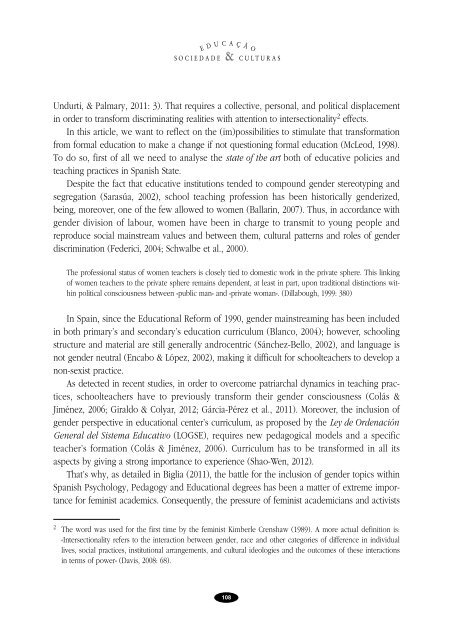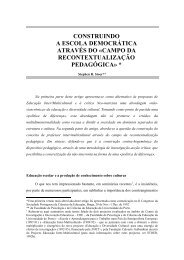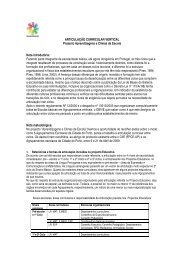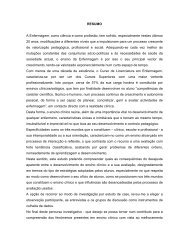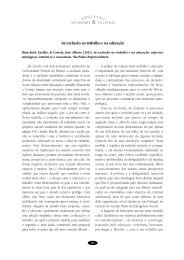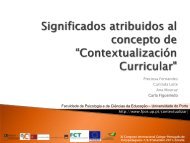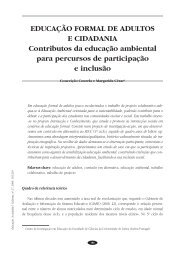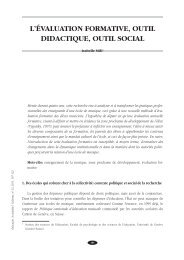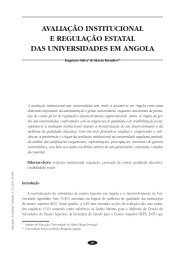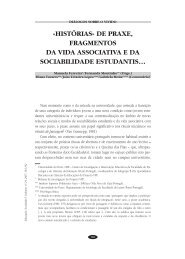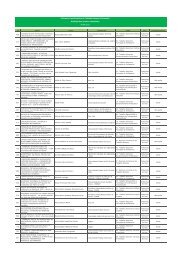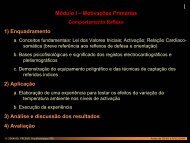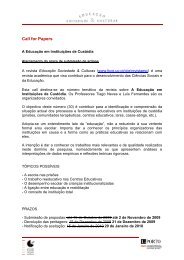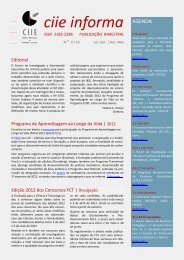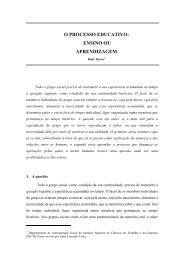REFLECTINGON AN ACADEMIC PRACTICE TOBOOST GENDER ...
REFLECTINGON AN ACADEMIC PRACTICE TOBOOST GENDER ...
REFLECTINGON AN ACADEMIC PRACTICE TOBOOST GENDER ...
You also want an ePaper? Increase the reach of your titles
YUMPU automatically turns print PDFs into web optimized ePapers that Google loves.
Undurti, & Palmary, 2011: 3). That requires a collective, personal, and political displacementin order to transform discriminating realities with attention to intersectionality 2 effects.In this article, we want to reflect on the (im)possibilities to stimulate that transformationfrom formal education to make a change if not questioning formal education (McLeod, 1998).To do so, first of all we need to analyse the state of the art both of educative policies andteaching practices in Spanish State.Despite the fact that educative institutions tended to compound gender stereotyping andsegregation (Sarasúa, 2002), school teaching profession has been historically genderized,being, moreover, one of the few allowed to women (Ballarin, 2007). Thus, in accordance withgender division of labour, women have been in charge to transmit to young people andreproduce social mainstream values and between them, cultural patterns and roles of genderdiscrimination (Federici, 2004; Schwalbe et al., 2000).The professional status of women teachers is closely tied to domestic work in the private sphere. This linkingof women teachers to the private sphere remains dependent, at least in part, upon traditional distinctions withinpolitical consciousness between «public man» and «private woman». (Dillabough, 1999: 380)In Spain, since the Educational Reform of 1990, gender mainstreaming has been includedin both primary’s and secondary’s education curriculum (Blanco, 2004); however, schoolingstructure and material are still generally androcentric (Sánchez-Bello, 2002), and language isnot gender neutral (Encabo & López, 2002), making it difficult for schoolteachers to develop anon-sexist practice.As detected in recent studies, in order to overcome patriarchal dynamics in teaching practices,schoolteachers have to previously transform their gender consciousness (Colás &Jiménez, 2006; Giraldo & Colyar, 2012; Gárcia-Pérez et al., 2011). Moreover, the inclusion ofgender perspective in educational center’s curriculum, as proposed by the Ley de OrdenaciónGeneral del Sistema Educativo (LOGSE), requires new pedagogical models and a specificteacher’s formation (Colás & Jiménez, 2006). Curriculum has to be transformed in all itsaspects by giving a strong importance to experience (Shao-Wen, 2012).That’s why, as detailed in Biglia (2011), the battle for the inclusion of gender topics withinSpanish Psychology, Pedagogy and Educational degrees has been a matter of extreme importancefor feminist academics. Consequently, the pressure of feminist academicians and activists2The word was used for the first time by the feminist Kimberle Crenshaw (1989). A more actual definition is:«Intersectionality refers to the interaction between gender, race and other categories of difference in individuallives, social practices, institutional arrangements, and cultural ideologies and the outcomes of these interactionsin terms of power» (Davis, 2008: 68).108


